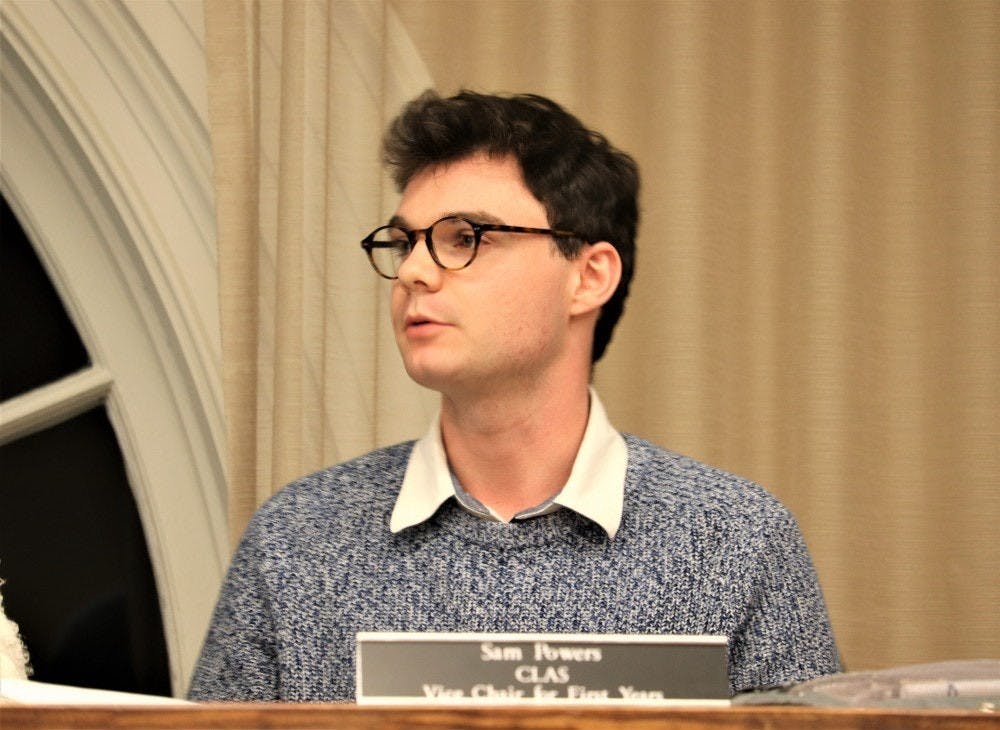On Sunday, January 27, elected University Judiciary Committee representatives unanimously approved two proposed constitutional amendments. The first modernizes language, including a shift from gender binary “he or she” pronouns to gender neutral “they” pronouns while the second refines the UJC Statute of Limitations. Given the demonstrated Committee support, both amendments will be up for referendum between February 26 and March 1 during University -wide elections. Not only are these important changes for the University Judiciary Committee, but they fit within the UJC’s dedication to student rights and current trajectory toward a more equitable student system.
The first proposed amendment, modernizing language, should be a given among student voters. The UJC deserves no special recognition for putting up an amendment that seeks to include all individuals in its grammatical construction. We are not pushing the envelope here, but rather catching up to the status quo, an opportunity we missed in 2017 when the UJC chose to move from male-dominated pronouns to a gender binary “he or she” construction as opposed to opting for gender neutrality.
As a governing document of one of the University’s core student-self-governing institutions, how the UJC references members of the University community makes a statement about the values of the community as a whole. While some may argue that its adjudicatory position within the Commonwealth of Virginia should compel the UJC to follow the precedent of male pronouns encoded within our current legislation, I argue that this is more of a reflection on the antiquated tendencies of the Virginia legal code and less a prescription for our operations. Furthermore, while concerns of ambiguity are often raised in regard to gender-neutral pronouns and the use of the singular they/their, the UJC executive committee debated a few rephrasing options, settling on the one proposed. We maintain that the shift to gender-inclusive language will not substantively change the intent, interpretation or implementation of UJC procedures.
The second proposed amendment –– a refinement of the UJC statute of limitations –– was developed by UJC Chair Kevin Warshaw in response to recent case filing trends. It fills a vital hole in current operations and bolsters the UJC’s dedication to student rights. The current statute of limitations from the UJC constitution reads as follows — “Complaints must be filed with the Committee within 45 calendar days of the time the complainant first knew or should have known the identity of the alleged offender.” As long as a complainant files a case against an accused that includes the accused’s name and some description of an event that corresponds to a violation of the University Standards of Conduct, it falls within our jurisdiction to accept.
However, not all complaints are completed up to investigation-ready quality. For example, under Standard 6, Violations of the Record –– the compendium of University rules and regulations –– complainants must cite which specific portion the accused allegedly violated. This does not always happen. Since the Record is comprehensive of actions ranging from alcohol consumption in residence halls to copyright protection and organizational hazing, accused students have the right to know which specific violations are being filed against them as opposed to digging through the record with their counselor to anticipate all possible violations befitting the situation. When the code sections are omitted, a complainant must refile.
In the past, when a complaint fits within our jurisdiction but is not up to our filing standards, we asked complainants to refile in deference to the accused students’ rights to clearly defined charges. But, this contrasts with the statute of limitations. Since students are not notified of charges until a complaint against them is accepted by the UJC, notification is markedly delayed by re-file. For example, if a complainant files an incomplete case 44 days after learning of the incident and then takes 30 days to refile, the accused would learn of legitimate charges against them over two and a half months from the incident date. Currently, the UJC has no means of rejecting refiles which take an inordinate amount of time.
The new amendments will cap the refile window to 14 days and enumerates several conditions under which a complainant can be asked to refile. While this may prove less convenient for complainants in the future, chiefly individuals in the Office of the Dean of Students who pursue cases against students found in violation of Housing and Residence Life Code or those arrested by UPD, we owe it to students to uphold a system that provides efficient case-processing.
This proposal comes on the heels of a series of other UJC reform efforts designed to increase equity in case processing. These include the integration of SIS Demographic data into the case processing system to provide detailed demographic reports on our accused population, the creation of a new ADA-accessible student website, a detailed overhaul of the recruitment process to enhance support officer quality and representation and incorporation of implicit bias awareness activities into UJC operations. While the UJC still has abundant room for progress, particularly in its relationship with minority communities across Grounds, we maintain that constant and persistent steps over time change a culture. And we believe these amendments are representative of the course we wish to chart for the next century of the University.
Sam Powers is a third-year College student and the University Judiciary Committee’s vice-chair for first-years.







